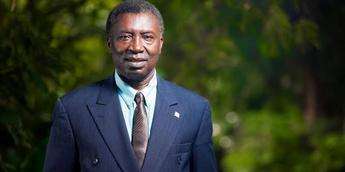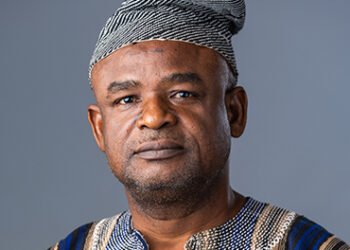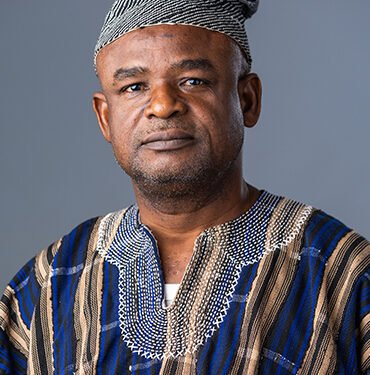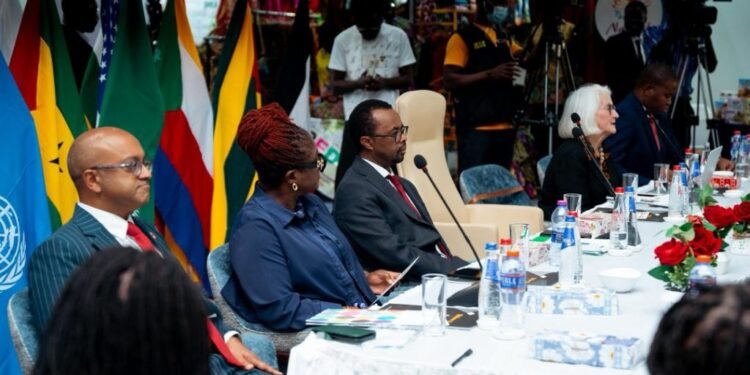In a damning account of environmental degradation and law enforcement inaction, renowned investigative and environmental journalist, Mr. Erastus Kwabena Asare Donkor, has painted a grim picture of the ongoing illegal mining activities in parts of Ghana.
Through personal observation, drone footage, and firsthand reports from affected communities, Mr. Asare highlighted how illegal miners, often with the knowledge of local police, are polluting water bodies and wreaking havoc on ecosystems.
His testimony underscored the depth of the crisis and calling into question the role of law enforcement in curbing this menace.
Mr. Asare recounted the blatant disregard for environmental laws and the puzzling inaction of police officers stationed in the vicinity of these illegal mining activities.
“There’s police station just a few meters from where they are washing the residue into the river. The main police station is sitting directly in the middle of the town, just walking from where they are washing the residue.”
Mr. Erastus Kwabena Asare Donkor Investigative and Environmental Journalist
According to Mr. Asare, illegal miners have set up camps within residential settlements, a clear violation of mining regulations. He noted; “It is like people robbing somebody at gunpoint, and the policemen are just doing their business. Nothing is happening.”
The law, he explained stipulated a punishment of two to five years imprisonment for such activities, yet law enforcement officers seem indifferent.
“There’s a police barrier at Japa, and they are doing their normal duties, checking roadworthy certificates, as if the illegal mining isn’t happening. But it’s a huge major crime spelled out in our own laws.”
Mr. Erastus Kwabena Asare Donkor Investigative and Environmental Journalist
Corruption Within the Police Force
Mr. Asare also shed light on the possible complicity of police officers in illegal mining operations.
“In some instances, I have come to the realization—and people have told me on the ground, there are eyewitness accounts—that some policemen have champagne machines that work for them, and they pay daily sales to them between 1,000 and 5,000 cedis a day, depending on the water source they are polluting, if there is so much gold.”
Mr. Erastus Kwabena Asare Donkor Investigative and Environmental Journalist
This level of corruption within the police force has emboldened miners and exacerbated the environmental crisis.
Chinese Miners and Pollution of Rivers
One of the most shocking revelations made by Asare concerns Chinese miners, who he observed were directly involved in polluting Ghana’s rivers with mining residue.
Along the Tano River at Samreboi, Mr. Asare witnessed Chinese miners washing mining waste directly into the water, further contaminating already vulnerable ecosystems. He emphasized; “I was shocked to see that what is referred to as small-scale mining [had these miners washing mining ] residue directly into the Tano river.”
This pollution, he emphasized, has dire consequences for communities that rely on these rivers for drinking water and farming.
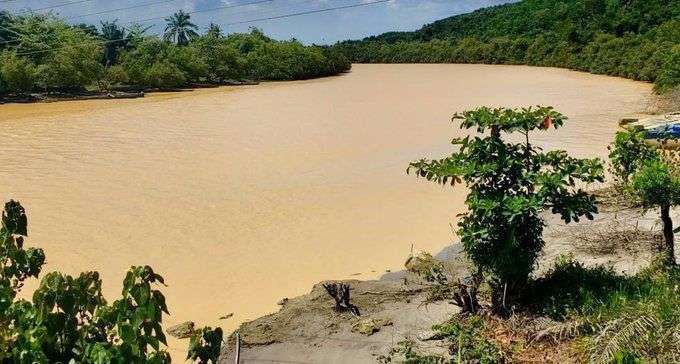
Mr. Asare drew a stark comparison to how such behavior would be treated in other countries. He emphasized; “Can you imagine going to China and washing mining residue into any of their streams or rivers? You’d be dead.”
He further noted that even in smaller neighboring countries, such actions would not be tolerated.
Yet in Ghana, Chinese miners seem to be operating with impunity, and Mr. Asare’s drone footage serves as irrefutable evidence of these illegal acts.
Impact on Livelihoods and Wildlife
The environmental degradation caused by illegal mining has had a profound effect on local communities, especially those reliant on fishing.
Mr. Asare recounted his visit to Ankobra town, where he witnessed the devastating impact on fishermen, of which many of these women have lost their livelihoods due to the pollution of water bodies that once supported abundant marine life. He noted; “Most of the women who were smoking fish along the beaches have all vanished.”
He explained that the local boats, which previously ventured out to sea for fishing, are no longer able to do so because the pollution has driven the fish away. He reiterated; “If you look at the pollution, and, when we put up the drone, you could see the Ankobra polluting the sea for close to two miles.”
The destruction of these water bodies has also caused the death of wildlife in the area.
“I also got to know that there were crocodiles that served as tourism potential for the foreigners who come in there to watch in the Ankobra Estuary area. All of them are dead.”
Mr. Erastus Kwabena Asare Investigative and Environmental Journalist
Erastus Kwabena Asare’s investigation sheds light on the systemic failures that have allowed illegal mining to flourish in Ghana, to the detriment of the environment and local communities.
His account of police complicity, the role of foreign miners, and the ecological destruction underscored the urgent need for action.
Without stricter enforcement of laws and greater accountability, the future of Ghana’s water bodies, wildlife, and the livelihoods of many rural communities remain in jeopardy.
READ ALSO; Habiba Sinare Reveals Struggles of Marrying Footballer

